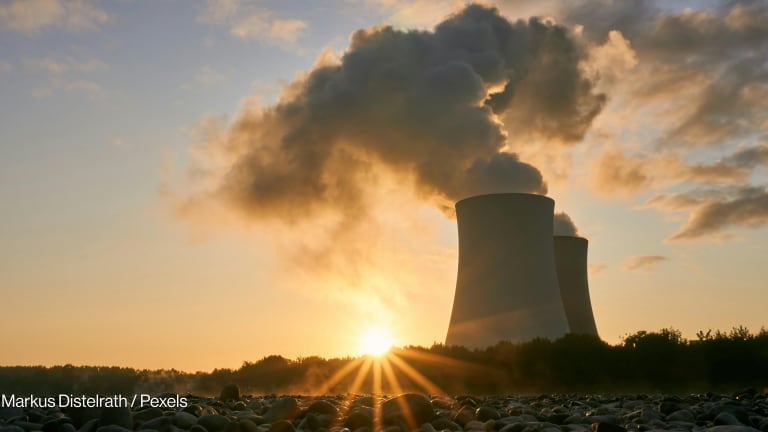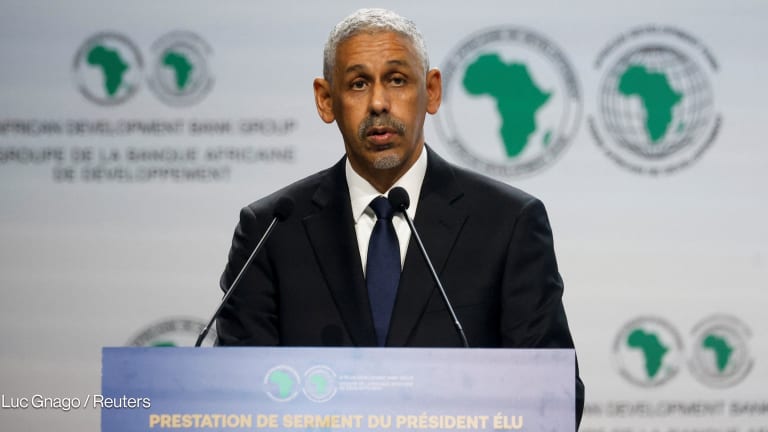World Bank-Albania Partnership
Over the next five years, World Bank support for Albania will focus on helping the country gain EU accession and achieve inclusive and sustainable economic growth.
Fishermen prepare their nets in Albania. The World Bank's support for Albania will focus on helping the country gain EU accession and achieve inclusive and sustainable economic growth. Photo by: Genti Shkullaku / World Bank / CC BY-NC-ND Before the global financial crisis, Albania was the fastest-growing nonoil economy in Europe. Its strong economic performance led to a significant drop in the national poverty rate, from 25.2 percent in 2002 to just 2.5 percent in 2008. Rural poverty meanwhile declined from 40 percent to 15 percent in the same period. The financial crisis reversed these gains. To stimulate economic growth and create more jobs, Albania’s government instituted a series of reforms, which also aim to restore public trust and progress toward EU accession. The National Strategy for Development and Integration for 2015-2020 lays out the blueprint to help the country achieve macroeconomic and fiscal sustainability, boost competitiveness, provide transparent and accountable public services, and enable efficient and sustainable use of natural resources. The government also adopted a road map for reforms in EU priority areas: public administration, judicial system, organized crime, corruption and human rights. The World Bank, Albania’s key strategic partner for more than two decades, developed its latest five-year program parallel to the government agenda. The overarching goal of the country partnership framework for fiscal years 2015-2019 is to support the Southeast European state’s efforts to be integrated into the EU and achieve inclusive and sustainable economic growth. Funding levels Since Albania joined the World Bank in 1991, it has received up to $2.1 billion in financial support from the multilateral institution. The bank’s portfolio currently consists of eight projects worth $450 million, mainly in the energy, irrigation and water supply, environment, health and social protection sectors. Over the next five years, the International Bank for Reconstruction and Development — the World Bank’s lending facility for middle-income countries — will provide up to $1.2 billion in financial support. The total loan package may change depending on Albania’s financial capacity, demand and progress on reform programs. Forty percent of the financial program will come in the form of budget support. Below is the indicative IBRD lending under the 2015-2019 partnership framework: Under the five-year framework, Albania will also receive between $150 million and $200 million in investments from the International Finance Corp. and political risk guarantees for foreign investments from the Multilateral Investment Guarantee Agency. Funding priorities The partnership framework’s three focus areas for the period were selected based on the results of a strategic country diagnostics the bank conducted and on additional selectivity filters, such as country ownership and championship, comparative advantage and strategic programming. Focus Area 1: Restore macroeconomic imbalances. Albania’s vulnerability is aggravated by its high public debts and arrears, fiscal deficits, and weak planning and management of public investments. Bank interventions under this area aim to support the country’s efforts to improve macrofiscal sustainability and financial sector stability. Focus Area 2: Create conditions for accelerated private sector growth. Three priorities of the strategic country diagnostics will be addressed in this area — establish a high-quality business environment; provide clean, efficient and financially sustainable energy; and formalize and enhance the inclusiveness and sustainability of land market. At the same time, it will also support government efforts to promote growth and inclusivity. Focus Area 3: Strengthen public sector management and service delivery. The World Bank is working toward enhancing governance, transparency and accountability of the Albanian government, specifically to build citizens’ trust in the government, strengthen service provision, and improve service delivery and access to social services. Interventions under this area will focus on public sector management and service delivery, while other development partners such as the EU will prioritize civil service reforms, security and rule of law. Two crosscutting themes — gender and EU accession — will inform all bank activities under the partnership framework. Gender dimensions will be integrated in all bank operations and analytical work, while reforms and investments will be promoted to further progress toward the country’s accession to the EU. Devex analysis The government’s strong commitment to reforms encouraged the World Bank to scale up its support to Albania in this latest partnership framework. The bulk of lending will be invested in fiscal 2015, which includes a $220 million policy-based guarantee. This is critical to protect the country’s fiscal space for growth-enabling investment and poverty-alleviating social services. The World Bank is however concerned that prolonged economic weakness in the eurozone might expose Albania to substantial macroeconomic risks. To address this, the bank will assist government efforts to implement fiscal reforms. It will also monitor eurozone performance and has made lending flexible enough to accommodate adjustments if needed. Meanwhile, the bank aims to address the institutional weaknesses and capacity constraints of implementing agencies through capacity building efforts and targeted IBRD support. Contact Tel: (355-42) 284-125 Fax: (355-42) 240-590 Email:
Fishermen prepare their nets in Albania. The World Bank's support for Albania will focus on helping the country gain EU accession and achieve inclusive and sustainable economic growth. Photo by: Genti Shkullaku / World Bank / CC BY-NC-ND
Before the global financial crisis, Albania was the fastest-growing nonoil economy in Europe. Its strong economic performance led to a significant drop in the national poverty rate, from 25.2 percent in 2002 to just 2.5 percent in 2008. Rural poverty meanwhile declined from 40 percent to 15 percent in the same period.
The financial crisis reversed these gains.
This story is forDevex Promembers
Unlock this story now with a 15-day free trial of Devex Pro.
With a Devex Pro subscription you'll get access to deeper analysis and exclusive insights from our reporters and analysts.
Start my free trialRequest a group subscription Printing articles to share with others is a breach of our terms and conditions and copyright policy. Please use the sharing options on the left side of the article. Devex Pro members may share up to 10 articles per month using the Pro share tool ( ).
As former Devex editor for business insight, Aimee created and managed multimedia content and cutting-edge analysis for executives in international development.








